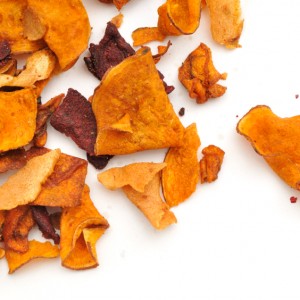Stomatitis in Cats
Stomatitis in an excrutiatingly painful condition in cats, in which, in the simplists terms, they become allergic to the plaque in their mouth and develop an autoimmune condition typicified by chronic inflammation in the mouth and painful lesions along the gums, and in severe cases on the sides of mouth, roof of mouth, and even down the throat. (LP)
Stomatitis absolutely must be treated by a vet because resolving this insanely painful condition without some medical intervention is not going to be possible, and ultimately the cat will die a slow and very painful death from malnutition and starvation due to decreased or total inability to eat due to the level of pain. At the very minimim the cat should be put on steroid drugs to manage the inflammation and decrease the pain. This should be administed in tablet form – not an injection by the vet – because some cats have very unanticipated reactions to steroid injections and die a very brutal death within 48 hours of receiving the injection – so always insist to your vet that you would prefer to give the tablets (twice daily) than have the one time injection. The good news is that steroid tablets are quite inexpensive. But you must be willing to give twice daily, each day. This is very easy to do by simply offering the cat a small cluster of3 or so temptations cats treats, which you have broken in half on a small dish and place the pill on top. As they devour thetreats, the pill goes down and they dont even notice it (it has no flavor and is chewable) – much easy than trying to insert a pill into their mouth without having them spit it out.
The vet will typically recommend a full dental exam under anesthesia, teeth cleaning to remove the plaque and tartar that is causing the problem, and extraction of any rotten teeth. This is the gold standard of treatment, the best practices, and if you have it at all within your means to get your cat this level of care, this is the best route. If you can not do so, then at the very minimum the cat should be put on steroid medication to try to contril the pain and inflammation. BUT, there is more that can and should be done, and this is the part the vet probably won’t tell you, because it involves incorporating naturopathic treatments, and this is something that just isn’t being taught to any meaningful degree yet in vetrinary medicince.
After much research I have found great improvements in our cat Missy, who had suddenly stopped eating for a couple days and had to be rushed to the emergency animal hospital. A cat has a very delicate system. Their organs can begin shutting down rapidly, leading to a very unpleasant death if they go without food for over 24 hours. By 48 hours it will be very dire.
We left the vertinaray hospital with pain meds, sterioid meds, and antibiotics, and a recommendation from the vet to do a full mouth examination, which we wanted done by our own vet. Due to COVID, there was a delay in the ability to get her in for a dental under anaesthesia, so in the meantime, I began researhing safe, natural approaches to include with the steroid medication to try to treat her stomatitis.
I began administering COQ10, once a day in her food (first thing in the day, put in only a small amount of food to ensure she gets it, if she can’t eat a lot due to pain). Also, added to food the powder from one Colostrum capsule, in the first meal of the day as well. (April 14, 2022). Both of these supplements help treat stomatitis by reducing inflammation AND strengthening the immune system.
Within 24 -48 hours after Missy began this protocal, there was an immediate improvement in her condition. She was eating more food, with greater ease, and showing a repeated and healthy interest in food. I maintain this protocal religously and she continues to do well.
Next, I added to her regime, Collodial Silver (10ppm), 3 times per day, administered in a syringe (1 ml) right into her mouth. If the cat will not allow this, then mix it into their food 3 times per day, beginnign with the first meal (its fine to add this with the other supplements, all in the same meal to make sure she gets it first thing in the day). The cat will absorb it through their digestive system and it will definitely help with immunity. HOWEVER if you can administer it via syringe directly into their mouth, this is the ideal, because the colloidal silver will make direct contact with the inflammation in the mouth, and serve as a topical treatment which will have a powerful effect on directly treating the painful ulcerations.
It takes commitment to keep up with the regime. Sometimes with a hectic schedule its easy to be tempted into missing a treatment, remain vigilant, as much as you would be motivated to do if you were the one suffering the pain. A committed approach is what is required to treat this.
In addition, I have started giving raw chicekn gizzards (give four gizzards 3 times per week, cut into manageable pieces). These are cheaply availably at either the meat department at the grocery store, or from a butcher (butchers will likely have chicken necks too, which are also excellent). Ideally serve raw, or if you have an issue with feeding raw, only lightly cook. Not only are these packed in high levels of vitamins and nutrients which cats benefit from immensely, but these meats, especially when raw, uncooked, naturally and very effectlvey CLEAN the teeth, removing plaque and tartar. There is an invisible outer skin on the gizzards which the cat must sink her teeth through to chew the gizzard, and this skin is natures own way of keeping cats teeth clean and removing and preventing the build up orf tartar and plaque. Many progressive veterenarians who are in tune with natural, effective health approapches for animals, recommend this.
Chicken necks are possibly even better, but often not as easily to get in the grocery store (a butcher shop will have them). This is because they have soft little bones, which are even better for scraping the plaque and tartar off teeth, and these bones are perfectly safe for cats due to their softness – they are not a choking hazzard like other bones which should generally not be fed to cats. Again, give 3 times per week.







Leave a Reply